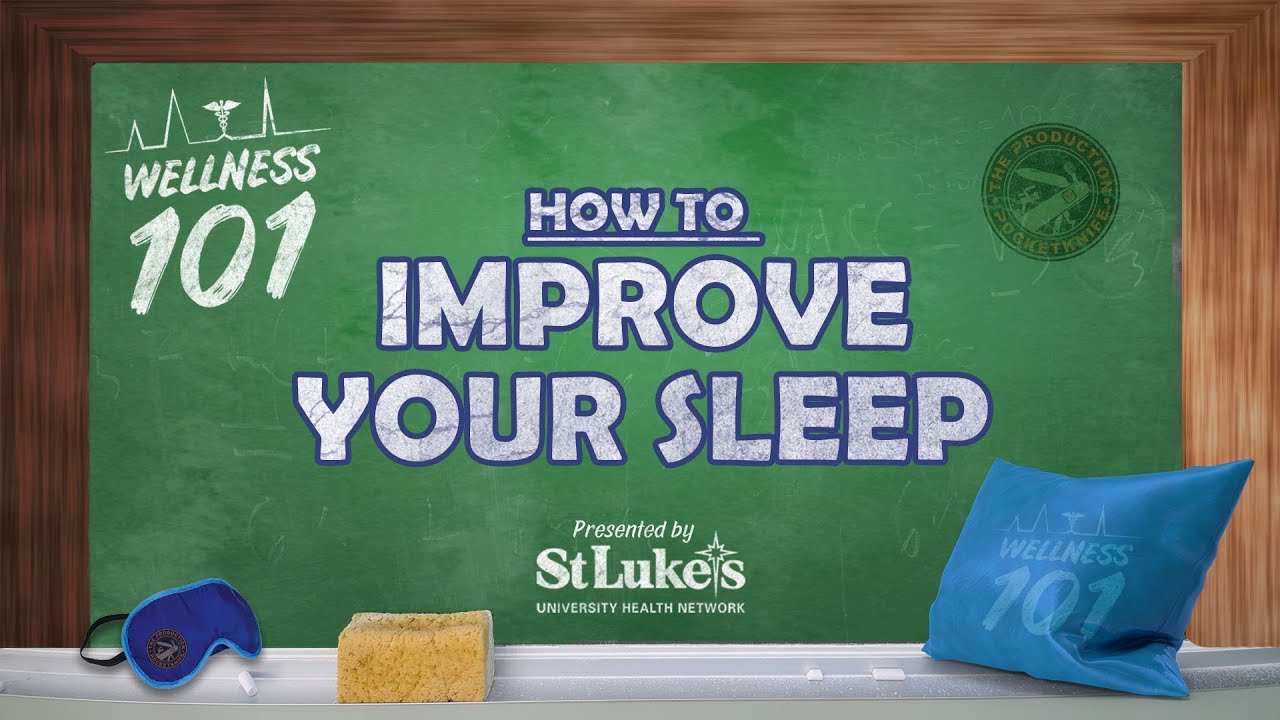And now it’s time for another Wellness 101 – How to Improve Your Sleep, presented by St. Luke’s University Health Network.
What’s the matter chief, can’t fall asleep? Well you’re not alone my friend, as a matter of fact, according to the National Sleep Foundation, 67% of Americans experience frequent sleep problems. This is largely do to poor sleep habits. But you don’t have to endure the agony of restless nights anymore. Just follow these simple steps and you’ll be off to dreamland in no time.
Step One: Avoid Caffeine
Now, before you quit on me already, I don’t mean all the time. Any coffee lover knows that caffeine is a stimulant and will keep you awake, so just make sure your last cup of joe is 4-6 hours before bedtime and you should be good to go.
Step Two: Develop a Sleep Schedule and Stick to it!
You need to start going to bed and waking up at the same time everyday…even on the weekends. This will help your body’s internal clock get into a routine and will help you fall asleep faster and stay asleep for the night.
Step Three: Turn Your Room Into a “Slumber Chamber”
A cool, dark, and quiet environment is what you are going after. Keep the room cool, between 65-70 degrees. Use black out curtains to eliminate any light from coming in and block out the outside noise with a fan or sound machine. Try to eliminate working or watching TV in bed. You want your brain to associate your room with sleep, not work.
Step Four: Exercise Daily
Working out can relieve the stress from the day and will help you fall asleep faster and more soundly. A word of caution though, exercising helps activate the alertness mechanism in your brain so it’s best workout not later than 3 hours before bed.
Step Five: Wind Down
The stress of the day can be a daunting. Be sure to give yourself about an hour before bed to wind down. Avoid TV and other electronics that can be stimulating to the brain. Try reading a book or listening to some relaxing music.
Bonus Tip: Sleep When You Are Tired
If you find yourself lying in bed for more than 10 minutes trying to fall asleep, get up and leave the room and go do something relaxing until you feel tired. You want your brain to associate your room with sleep and not the anxiety of not being able to fall asleep.
If after these steps, you are still finding difficulty falling asleep, don’t hesitate to contact your doctor or nearest St. Luke’s University Health Network Sleep Center near you.
source
Wellness 101 – How to Improve Your Sleep



